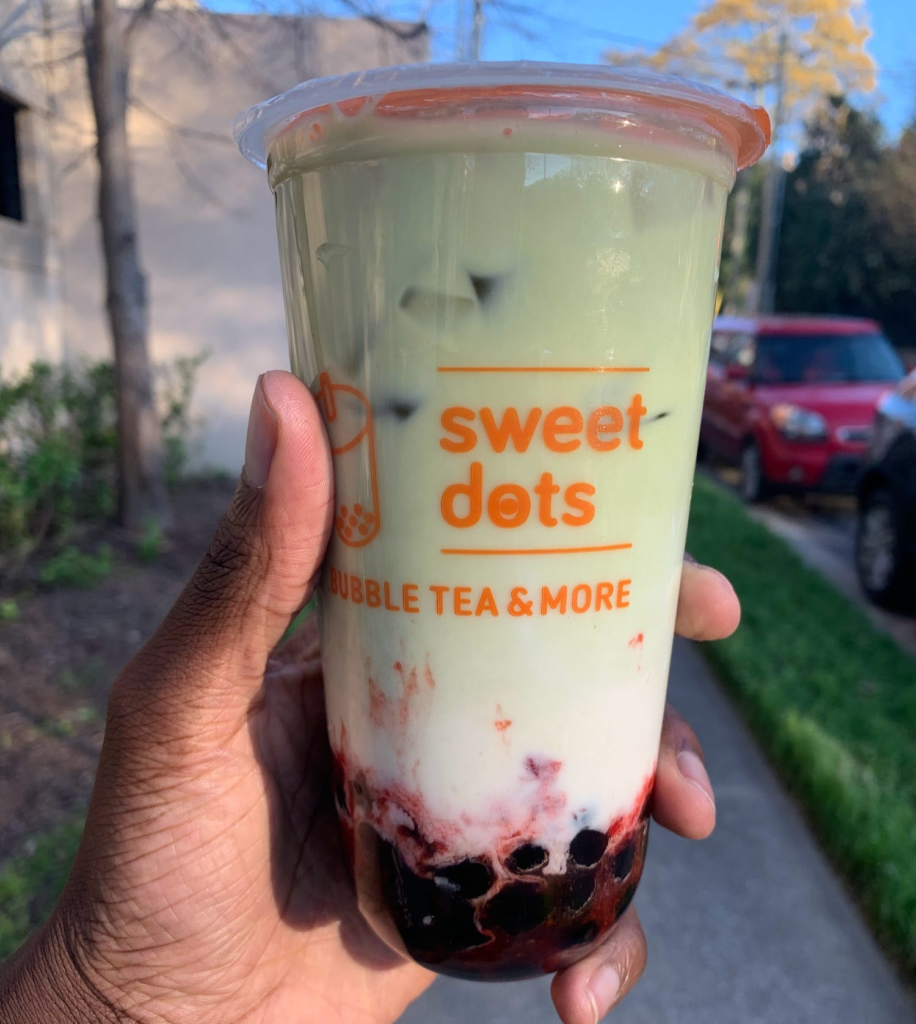
I like Boba but had quite an obsession with it. Something that used to be an occasional treat became a weekly craving, getting several times a week. It even became a task on my checklist whenever I visited a new town.
I would sample the Boba shops within the town, experimenting with different blends and flavors. Over time, I built a gallery of Boba teas that I could honestly transform into an NFT collection and trade for $69 million (something similar to what Beeple did), but that’s just pure delusion.

Rats and Oreos
A small-scale research was conducted at Connecticut College to study the potential addictiveness of high-fat/high-sugar foods. Led by Joseph Schroeder, an associate professor of psychology, he and a team of students explored the correlation between ‘drugs’ and the environment.
Their findings revealed that rats developed a comparable association between the pleasurable effects of consuming Oreos and a particular environment, much like their association between cocaine and a specific environment.
They designed a two-sided maze and placed hungry rats inside. On one side of the maze, they placed Oreos, and on the other side, they placed plain rice cakes.
After allowing the rats to explore both sides and sample the foods, the researchers observed which side of the maze the rats chose to spend more time on.
The results showed that the rats voluntarily spent significantly more time on the Oreo side compared to the rice cake side. The rats had a strong preference for the Oreos over the bland starchy rice cake when they were in a hungry state.
They would break it open and eat the middle first
Honohan, one of the research students noted.

They looked at their findings alongside results from rats given cocaine or morphine injections, known addictive substances. They observed that rats conditioned with Oreos spent an equal amount of time on the “drug” side of the maze as rats conditioned with cocaine or morphine.
They conducted further studies and found that Oreos activated a significantly higher number of neurons compared to cocaine or morphine. They examined the nucleus accumbens, the brain’s pleasure center, and discovered that more neurons were activated in this region upon ingestion of Oreos compared to drugs like cocaine or morphine.

A different experiment on intermittent sugar intake in rats confirms this hypothesis. Scientists discovered that rats with intermittent sugar access exhibited binge-like behavior, with dopamine being released in the nucleus accumbens.
They also observed modifications in the opioid systems of the brain, leading to withdrawal-like symptoms when the rats were taken off sugar.
Opioid — compound resembling opium in addictive properties or physiological effects.
This raises the question of whether sugar is more addictive than drugs like cocaine. In comparison, sugar is easily accessible and more affordable.
Sugar and Human Beings
For most of human history, it was crucial to eat a ton of high-calorie foods to survive. Sugar wasn’t as widely available then as it is today, and our brains haven’t evolved to cope with the widespread availability of sugar in most of our food sources.
In a prior blog, I explored how we’re consuming a lot more sugar than we used to, some of which are in food sources where we wouldn’t normally expect sugar.
Glucose is the preferred source of energy for the brain, especially neurons which are responsible for relaying information between the brain, the central nervous system, and the rest of the body.

The brain rewards us by releasing dopamine when we do activities it perceives as beneficial. This dopamine encourages us to repeat such activities.
Over time, the brain can become desensitized to the same activity, requiring more intense versions of that activity or substance to release dopamine.
Sugar elicits a similar response. Eating sugar causes dopamine and serotonin to be released in the brain’s reward and pleasure centers. This gives us a feeling of satisfaction. Because the reward feeling is pleasurable, we are driven to eat more sugar.

The more sugar we eat, the more sugar it takes to trigger the same pleasure response. This creates ever-increasing sugar cravings.
Our brains drive us to seek out that dopamine hit from sugar, even though too much sugar is unhealthy. Excessive consumption creates cravings which could morph into addiction-like behavior if not controlled.
Fructose particularly is the most craving-inducing sugar due to its ability to bypass appetite-regulating hormones like insulin and leptin, encouraging overconsumption. It is a common additive in high fructose corn syrup, a common ingredient in many foods today.
Excessive sugar consumption has been linked with obesity, metabolic diseases, high blood pressure, and diabetes among other ailments.
How Sugar Affects Mood, Motivation, and Cognition
Apart from the addictive-like responses it elicits, excess sugar consumption has notable effects on our psychological makeup:
- Mood: Consuming sugar-rich foods creates “sugar highs” which elevate our moods due to the dopamine released. If unchecked, this could create a sort of dependence to stay in that state, or when stressed, induce bingeing habits as a way of coping with stress.
- Depression: Excessive sugar consumption has been linked to depression. This is due to its inflammatory effects on the brain, and the reduction of the production of BDNF (Brain Derived Neurotropic Factor) a brain hormone that is essential in the synthesis of new brain cells, memory, and learning. Men are more likely to be affected by sugar-induced depressive cases.
- Impairment of Cognitive Abilities: Excessive sugar consumption leads to down-regulation of receptors for BDNF. A study done to link habitual sugar intake to cognitive impairment confirmed a notable association between high sugar intake and lower cognitive performance across verbal and visual memory. The findings of this study add to the existing knowledge of the adverse effects of sugar-rich diets on brain and cognitive function.
Controlling Sugar Cravings
Controlling sugar cravings can be very difficult considering how sugar works and wires our brains.
Some helpful tips for reducing sugar cravings include:
- Avoid keeping sugary foods at home or easily accessible places in your vicinity. Out of sight, out of mind.
- Manage stress through exercise, meditation, social support, journaling, etc. as stress increases cravings for sugary food.
- Get enough substantial sleep. Lack of sleep has been linked to increased appetite and sugar cravings.
- Drink more water and herbal teas to help reduce cravings between meals. Dehydration can aggravate your sugar cravings.
- Eat regular, nutritious meals that contain protein, fat, and fiber.
- Replace sugary foods and beverages with fruit, yogurt, and other healthier choices to help satisfy your sweet tooth.
- Gradually cut back on added sugars in your diet instead of going cold turkey. This helps minimize intense cravings and withdrawal.
While these tips are useful, it’s easier said than done.
Against All Reason
Growing up, I had quite a sweet tooth, and despite reminders from school, my parents, and numerous Colgate ads, I paid little heed to the amount of sweets I was consuming.

At times you have to be burned to truly understand the consequences of your actions. Warning signs came in the form of a few dark spots on my teeth. Despite a more structured brushing routine, they persisted. I ended up with dental cavities, and the pain that followed meant it was time to change.
Through a strict dietary overhaul and more careful care for my teeth, the pain subsided. Instead of being consistent and capitalizing on this improvement, my childish mind perceived that I could go back to my ways.
This backfired of course, and I spiraled deeper into the trenches of teeth problems. It became a cycle.

It is truly remarkable and humbling how, even as adults, we might struggle to control sugar cravings, despite the knowledge that overindulgence could be detrimental.
Mature as we may be, we still find ourselves on different occasions giving in to urges, some of which could contradict our very well-being.
I think it’s important to recognize that despite our incredible reasoning capabilities, we will make irrational decisions at times, and that is OK. That is a condition of human existence.
Our lives are a constantly shifting tune between chaos and order. At some point, it’s heavy metal, and at some other point, it’s serene jazz fusion.

Order gives us security and stability, while chaos allows us to learn and grow from unexpected challenges that we experience. The goal is not to be perfect but to be in control as much as we can.
Consider these two goals:
Quit sugar forever.
Reduce the number of teaspoons I add to my coffee by one.
Unless you have an incredible amount of willpower, pulling off the first goal is going to be difficult. It is ambiguous, and it could feel overwhelming just getting started. The second goal is easier, more specific, and more practical.
It will help you slowly nurture the confidence and belief that you can win future battles. Of course, you will lose some battles along the way, but the ultimate goal is to win the war — whatever the war is in your case.
Conclusion
I drink Boba but not as frequently as I used to. I enjoy it as an occasional indulgence, and it’s not a must-checkout thing whenever I visit a new place anymore.
All in all, my goal was to maximize control of my cravings as much as I could, as opposed to folding mindlessly when presented with the opportunity to indulge.